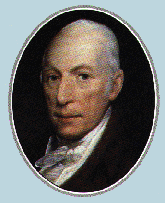Alexander Gordon, 4th Duke of Gordon
|
His Grace The Duke of Gordon KG PC |
|
|---|---|

The 4th Duke of Gordon
|
|
| Preceded by | Cosmo Gordon, 3rd Duke of Gordon |
| Succeeded by | George Gordon, 5th Duke of Gordon |
| Personal details | |
| Born |
18 June 1743 Gordon Castle, Fochabers, Kingdom of Great Britain |
| Died | 17 June 1827 (aged 83) Berkeley Square, London, United Kingdom of Great Britain and Ireland |
| Nationality | Scottish |
| Spouse(s) | Jane Gordon, Duchess of Gordon |
| Parents |
Cosmo Gordon, 3rd Duke of Gordon Lady Catherine Gordon |
| Known for | Nobleman |
Alexander Gordon, 4th Duke of Gordon KT (18 June 1743 – 17 June 1827), styled Marquess of Huntly until 1752, was a Scottish nobleman, described by Kaimes as the "greatest subject in Britain", and was also known as the Cock o' the North, the traditional epithet attached to the chief of the Gordon clan.
Alexander Gordon was born at Gordon Castle, Fochabers, on 18 June 1743, the eldest son of Cosmo Gordon, 3rd Duke of Gordon and his wife, Lady Catherine Gordon, daughter of the 2nd Earl of Aberdeen. He was educated at Eton and also possibly at Harrow. He succeeded as 4th Duke of Gordon in 1752. His younger brother was Lord George Gordon who led the Gordon Riots.
He was elected as a Scottish representative peer in 1767. He was appointed a Knight of the Thistle in 1775 and was created a Peer of Great Britain as Baron Gordon of Huntley, of Huntley in the County of Gloucester, and Earl of Norwich, in the County of Norfolk, in 1784. His new titles were not universally popular. He was thought to have taken designations to which he had no right. The Scots Peerage described the Gordon of Huntley peerage as "an absurd specimen of Peerage topography. The village of Huntley, four miles from Newent in Gloucestershire, had apparently no connection with the Gordon family or with the town of Huntly in North Britain." George Edward Cokayne in The Complete Peerage says the following with regard to the Duke's choice of Norwich for his Earldom: "His great-grandmother was the daughter of the 5th Duke of Norfolk and 1st Earl of Norwich, but though that title had become extinct in 1777, the representation thereof did not vest in the issue of that lady."
...
Wikipedia
